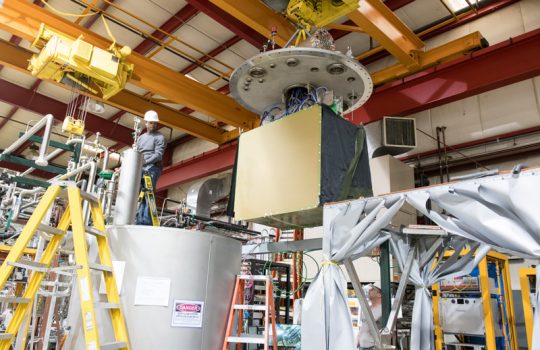In photos: Fermilab site preparation for LBNF nears completion
- construction
- Deep Underground Neutrino Experiment
- DUNE
- facilities
- LBNF
- Long-Baseline Neutrino Facility
- neutrino
All summer long, progress on preparing the Fermilab site for the construction of the Long-Baseline Neutrino Facility has been proceeding at a healthy clip. Now, as summer winds down, that site prep is nearing completion.



